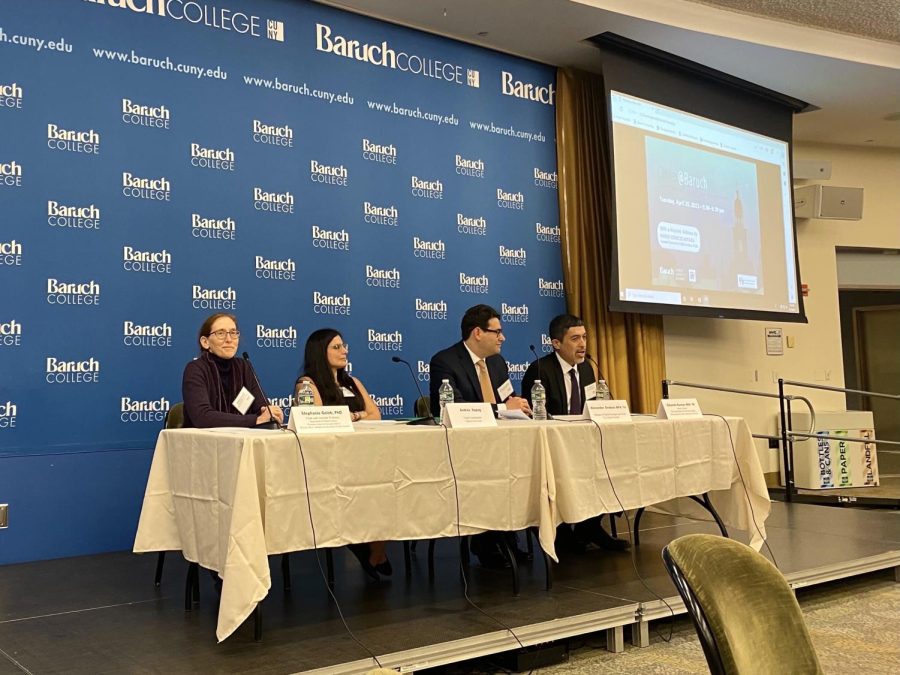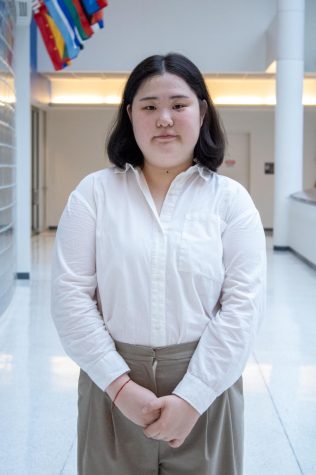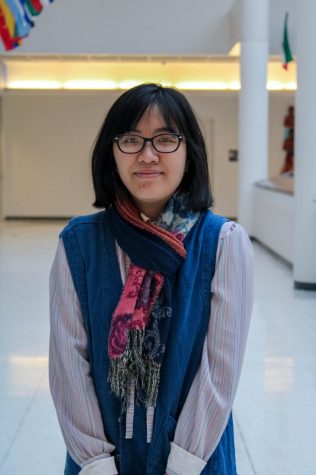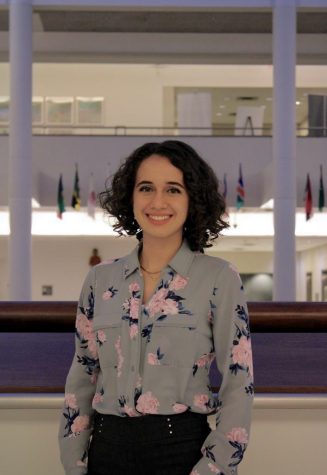Baruch invites alumni and Chilean representatives for economics chat
May 8, 2023
Baruch College’s Office of Alumni Relations and Volunteer Engagement hosted Chilean representatives and former graduate students to discuss the Latin American nation’s economy at the William and Anita Newman Vertical Campus on April 25.
The college facilitated the celebration to commemorate the 200th anniversary of U.S.-Chilean diplomatic relations. Titled “Chile @ Baruch: 200 Years of Trade and Investment,” the event welcomed students, alumni, faculty and staff to listen to panel conversations about the economy and eat a dinner that served authentic regional dishes.
“Curiosity is something fantastic because it brings about innovation,” Mario Ignacio Artaza, the consul general of Chile in New York, said in a keynote address. “It brings about questioning. It brings about communication. It brings about relationships. In today’s world — a world of competition, strategic competition — what we most need amongst peoples is to talk, to learn, to understand that in the end, we’re all the same.”
He presented a slideshow about the history between Chile and the United States, likening the “spirit of cooperation, of diplomacy [and] of partnership” of the latter nation to Bernadette Meehan, the current U.S. ambassador to Chile. Artaza also acknowledged Baruch’s own close ties with Chile: Meehan’s father, Joseph, graduated from the college in 1972.
Stephanie Golob, the chair of Baruch’s Department of Political Science, moderated the panel. The panelists included Alexander Grabois, the manager of global strategies and trade for the U.S. Grains Council; Eduardo Roman, a senior advisor to the Association for Private Capital Investment in Latin America; and Andrea Sapag, the trade commissioner of Chile in New York.
Sapag works as the trade commissioner of Chile in New York, overseeing activity in the Northeast region of the United States. She described her organization as the bridge between exporters and importers.
After China, the United States is Chile’s second-largest trade partner. But outside of mining exports to China, Chile’s economy is impacted more significantly by the United States, Sapag said.
She highlighted that, amid the COVID-19 pandemic, Chile’s exports to the United States decreased by 3.5% in 2022, against a 50% increase in trade activity the previous year.
“Another thing that is important to say is that in 2021, Chile led the export of 26 products to the world.” Sapag said. “I think that it’s something that we have to be proud about Chile because we are a small country.”
Grabois obtained his Master of Public Administration at Baruch in 2014. He worked previously as a trade representative for ProChile, a company that promotes the exportation of Chilean goods and services, such as mining products and seafood, to potential buyers and partners in international markets.
“When it comes from Chile, that’s what gets us the notoriety and the development of the economy” Grabois said. “It’s a way that we really support Chile. It really does support its growers and supports entrepreneurs.”
He noted that Chile’s seafood industry is worth $3 billion annually, with salmon alone making up $2 billion, but trade companies like ProChile are looking to expand the diversity of the commodities they export.
“The commodities sometimes aren’t the sexiest products in the world, but they are ones that really opened the doors and have set the stage for some innovative and new creative ways for Chilean products to enter the economy,” Grabois said.
Roman, who obtained his Master of Business Administration at Baruch in 2008, discussed what makes investing in Chile different from investing in other Latin American countries.
He said that “Chile has become an innovation-and-tech hub in the region” during a generation of digitalization and automation. He pointed out two of the country’s “unicorn” ventures: the food technology company NotCo and the insurance technology company Betterfly.
At the heart of the panel, Artaza said that he hoped attendees understood Chile’s presence in the global economy, as well as cultural institutions.
“That’s the spirit of Chile to share with you this evening: a spirit of a country that never gives up, a spirit that wants to be part of each one of you, not only this evening, not only at Baruch College but most possibly through each one of you tonight,” Artaza said. “Chile is a place that makes a positive change in the world, but not because of lives without anybody near. As I showed you before, without New York, without that spirit, [Chile] possibly would not be the same.”










